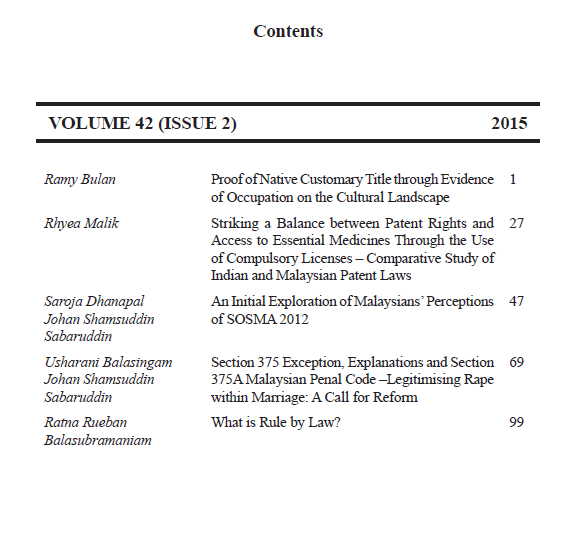Proof of Native Customary Title through Evidence of Occupation on the Cultural Landscape
Keywords:
land rights, pre-existing, occupation, indigenous, property rights, common law, Kelabit, oral narratives, cultural traditions, Land Code, 1958Abstract
According to established principles of British colonial and international laws when the Crown acquired sovereignty over a territory, the land rights of local inhabitants under their own system of laws continued and are recognised as pre-existing rights. Their rights exist because they are derived from native laws, governance, practices, customs and traditions. Common law also acknowledges that use and occupation of land by indigenous inhabitants at the time of sovereignty gave rise to real property rights for at common law, every person who is in possession of land is presumed to have a valid title and persons in exclusive occupation of land have title that is good against anyone who cannot show better title. This paper presents a case study of Kelabit occupation, connection and interaction on the lands and territories as evidenced through historical, anthropological and archaeological records as well as oral narratives and cultural traditions passed down through the generations. Against the backdrop of a limited recognition of occupation and cut-off date for creation of NCR under the Land Code 1958, the writer discusses the cultural landscape of the Kelabit Highlands in Sarawak, showing how the burial customs, rich historical activities as evidenced in the megalithic as well as other non-megalithic cultural practices, unique to the Kelabit, mark past and continuous presence and connection to the land. Despite the absence of state demarcated and surveyed boundary, their presence is etched in the landscape of the land that they call their ancestral homeland providing a basis of claim both under their own laws and customs and under common law as well as satisfying the requirements of statute.



